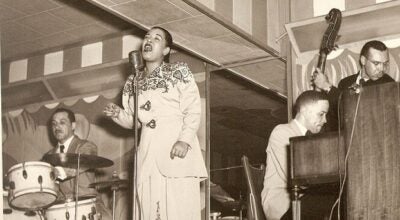On business development in Virginia
Published 4:26 pm Tuesday, March 21, 2017
Without jobs, communities do not survive. When communities lose their employers, the entire community suffers. Throughout the region, over the last generation, we have lost many of our largest employers. This effects, not just those families that were directly employed by those companies, but, as well, the local businesses that serve those families. Businesses that sell and service vehicles, stores that sell clothing and home products, restaurants, contractors and other needs that families use on a regular basis are all impacted. As those businesses lose consumer dollars, some close while others reduce their staffing.
This loss of jobs forces folks to move elsewhere, leaving in their wake disappointed family and friends. We have all seen this in much of rural Virginia.
To deal with this situation is why one of the most important roles that government has is to help develop new opportunities to provide jobs that will allow our families, our children and our grandchildren to remain in the region if they so chose. Each locality has someone who has the responsibility to be the point person for economic development. Any time a county or town asks for my assistance, I am delighted to help.
At the state level, the governor, his staff and the General Assembly also accept that this is an important responsibility. The governor usually acts through his secretary of commerce and trade. Jointly, he and the General Assembly work through the Virginia Economic Development Partnership (VEDP). The VEDP was created under former Gov. George Allen to span the gap between one governor’s administration and the following one. Prior to the creation of VEDP, one governor’s secretary would spend part of his last year planning for his next job then the next governor would appoint someone who would need to learn the ropes. This left Virginia’s outreach in limbo for too long.
Regrettably, over the years, VEDP lost concentration on their core responsibility — partly because each governor was too interested on big headline announcements, partly because the governor’s office wanted to control the partnership and partly because of unfocused day-to-day management, the folks in our towns and counties were often left to wait for opportunities to find them. This was not a good strategy.
After a careful study last year, the General Assembly decided action had to be taken. This year, Del. Chris Jones, of Suffolk, and I had similar legislation. Our bills agreed on most policy issues; both required closer day to day monitoring. However, we did disagree on the makeup of the governing board. Jones’ bill would terminate the existing board and start over. My bill called for a transition without creating the turmoil of a new board with no experience. One of the last actions of this year’s session was to reduce the overall size of the board. Additionally, I insisted that there needed to be regional representation.
We believe that the changes that board leadership has made over the last year have been very positive. They hired an experienced president who understands that all parts of the state must succeed, not just the populated regions.
Stephen Moret, the new president, is a strong supporter of my legislation from last year that calls for the partnership to work more closely with smaller existing businesses to help them grow. I look forward to the success of that program as well as the renewed focus on rural Virginia.
Frank Ruff represents Lunenburg in the state Senate. His email address is Sen.Ruff@verizon.net.



